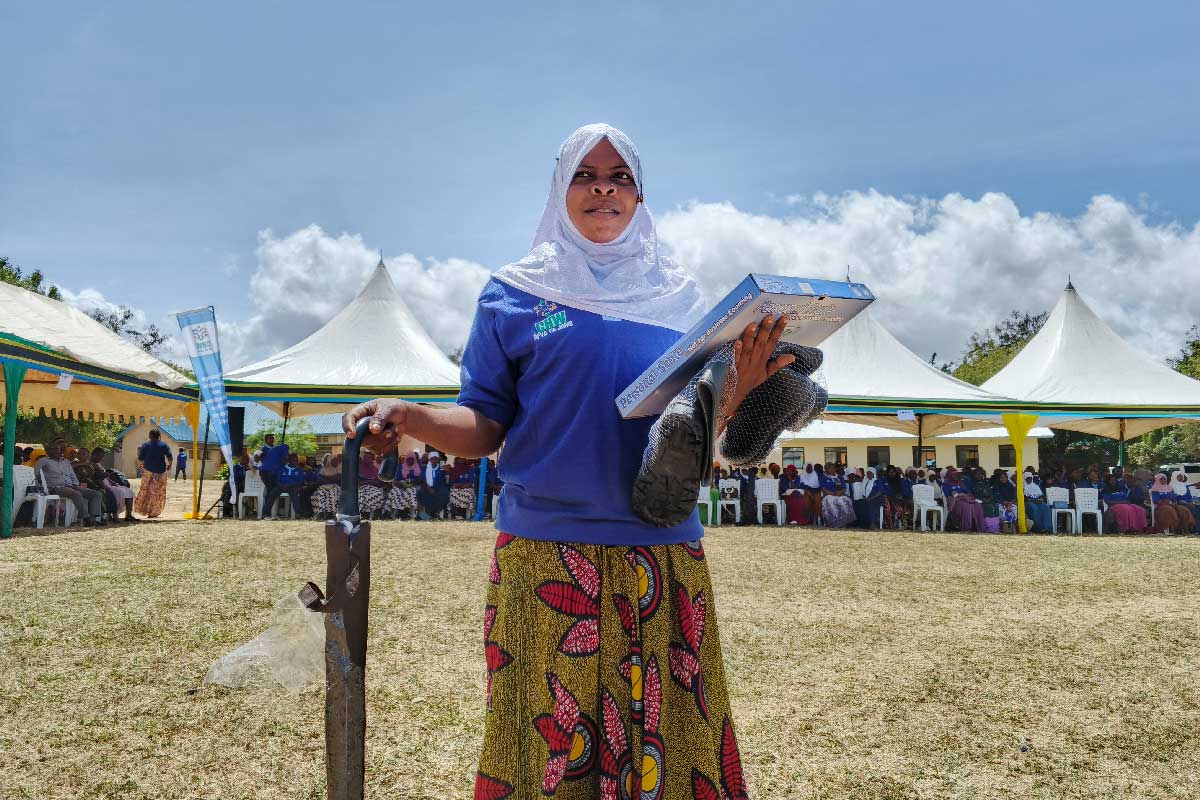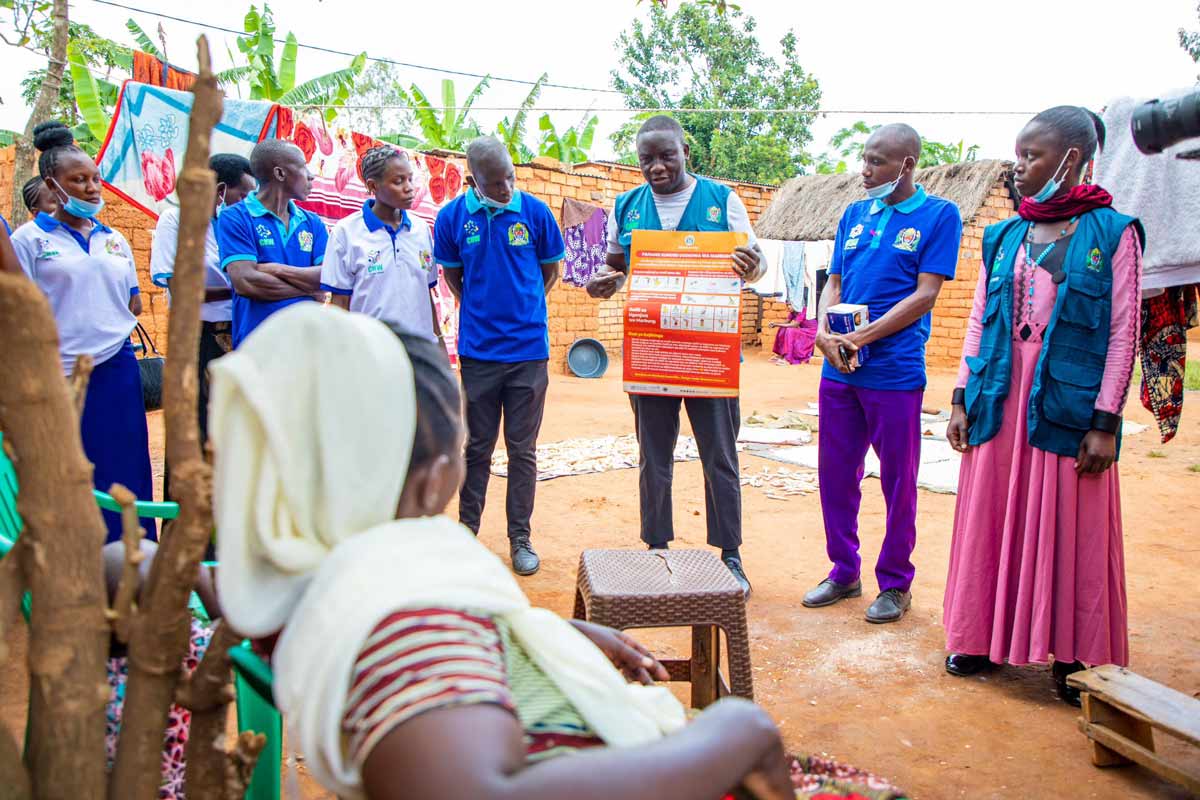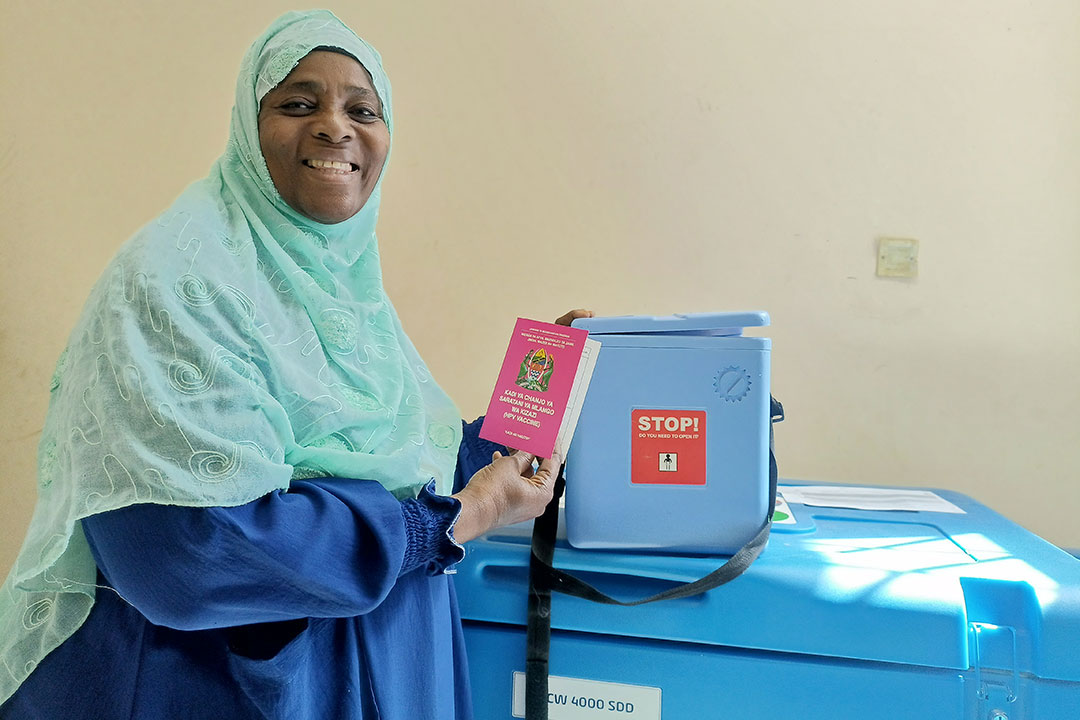Zanzibar is on the path to eliminating cholera, researchers say
Outbreaks of cholera have blighted Zanzibar’s recent history, but in the last half decade, the deadly infection has been brought to heel.
- 15 November 2023
- 5 min read
- by Syriacus Buguzi

Zanzibar, the Indian Ocean archipelago known for its stunning white beaches and a rich cultural heritage, has been racked by no fewer than 17 cholera outbreaks since the 1970s.
But, even as cholera incidence has risen globally, epidemics of the deadly stomach disease have been absent on the Zanzibar isles for the last five years.
“I used to see patients vomiting and dying. It was scary. But I haven’t heard of such outbreaks in recent years.”
– Haji Sued Haji, aged 74
Scientists say a plan adopted in Zanzibar to curtail transmission raises hopes that the disease will be eliminated on the islands by 2027. Research on the approach, conducted by scientists from the World Health Organization (WHO), the Ministry of Health for Tanzania and Zanzibar, and UNICEF, was published this year in The Pan-African Medical Journal.
The plan works
Zanzibar's cholera plan rests on three pillars – an enabling environment, prevention and response – and encompasses a diverse set of actions, from training food workers on cholera prevention, to major investments in water and sanitation in hot-spot zones, to preventive vaccination, to stockpiling life-saving IV fluids and oral rehydration solutions where they might be needed, and more.
The model has proven "very effective", write the researchers. Zanzibar's high-level leadership commitment ought to be taken as "exemplary", they add.
Relief
Residents remember the last major outbreak of cholera to hit the island. It began in September 2015, and rolled on until July 2016, sickening 4,330 people, and killing 68.
Cholera, a bacterial disease transmitted in contaminated food and water, spreads fast, sometimes killing patients in as little as a few hours after exposure.

Credit: Syriacus Buguzi
Haji Sued Haji, aged 74, from Kisauni on Unguja island, has long experience of the epidemic bug. In the 1970s, when he had just returned from the battlefield as one of the citizens on the frontline during the war between Uganda and Tanzania, health infrastructure on the island was less developed than it is now, he says.
"I used to see patients vomiting and dying. It was scary. But I haven't heard of such outbreaks in recent years," he says.
Have you read?
For Haji, the fear is that the deadly disease could still re-emerge, if the measures adopted to interrupt the outbreaks are not sustained.
"I see many dirty ditches here in Kisauni. There are people who don't take precautions like hand washing. But health authorities have been constantly providing us with health education and prevention techniques," says Haji.
Outflanking cholera
His story – like that told by others in the isles – reflects findings of the retrospective analysis published in the Pan-African Medical Journal earlier this year.
“The improvement of water and sanitation infrastructures, coupled with a comprehensive plan to eliminate cholera, has set Zanzibar on the path towards a future free from this disease."
– Ghirmay Andemichael Redae, Liaison Officer for WHO Zanzibar
"The improvement of water and sanitation infrastructures, coupled with a comprehensive plan to eliminate cholera, has set Zanzibar on the path towards a future free from this disease and contributing to elimination of cholera in the United Republic of Tanzania," says the lead author, Ghirmay Andemichael Redae, a Liaison Officer for WHO Zanzibar.
"Significant progress such as this could not have been without leadership of the Government taking the lead to coordinate all sectors to be involved," says Andemichael Redae.
The entire population of Zanzibar has been targeted for cholera elimination through the approach, which included providing preventive cholera vaccination to 322,483 people in cholera hotspot areas of Unguja and Pemba Islands. However, the researchers noted that when COVID-19 vaccines were introduced concurrently, the coverage for cholera vaccination declined.
Speaking to VaccinesWork, Rashid Maulid, the director of the Division of Research in the Ministry of Health, Zanzibar, said the archipelago's approach, formally titled the Zanzibar Comprehensive Cholera Elimination Plan (ZACCEP) 2018–2027, is a multi-sectoral strategy backed by major governmental commitment.
"We are addressing underlying socio-economic factors, including poverty, inadequate infrastructure, and access to health hcare, which contribute to cholera outbreaks," says Maulid.
The public takes up the challenge
Findings of the study show how coordination between the Health Promotion Unit of the Ministry of Health, WHO, UNICEF, Red Cross Society of Tanzania, and Pemba Island Relief Organization (PIRO) have boosted transmission disruption.
The authors say a house-to-house strategy was adopted to mobilise communities on prevention, alongside the use of such public-facing strategies as mobile vans and consistent use of the media for sensitisation.
Aisha Saleh Iddi, a 48-year-old resident of Chukwani in Zanzibar, says people in her street – inspired by the health authorities – have been distributing water filters and teaching others how to use them to protect themselves from cholera. Iddi says that people are now aware of how to use these filters, which is a positive development.
“We are constantly urged to take care of the environment so that we don’t go back to the bad situation we were in. When there is a cholera outbreak, there is fear everywhere.”
– Aisha Saleh Iddi, resident of Chukwani
"We are constantly urged to take care of the environment so that we don't go back to the bad situation we were in. When there is a cholera outbreak, there is fear everywhere," she says.
To sustain the gains, hygiene behaviour change interventions are to be internalised in key segments of the community, says Happiness Willbroad, the Head of Programs for WaterAid Tanzania, an organisation that has been collaborating with the Zanzibar authorities to address cholera.
"HBCC interventions in hygiene promotion, campaigns and trainings should be a continuous mission, as it will allow people to tap into knowledge on hygiene best practices in society," she says.









